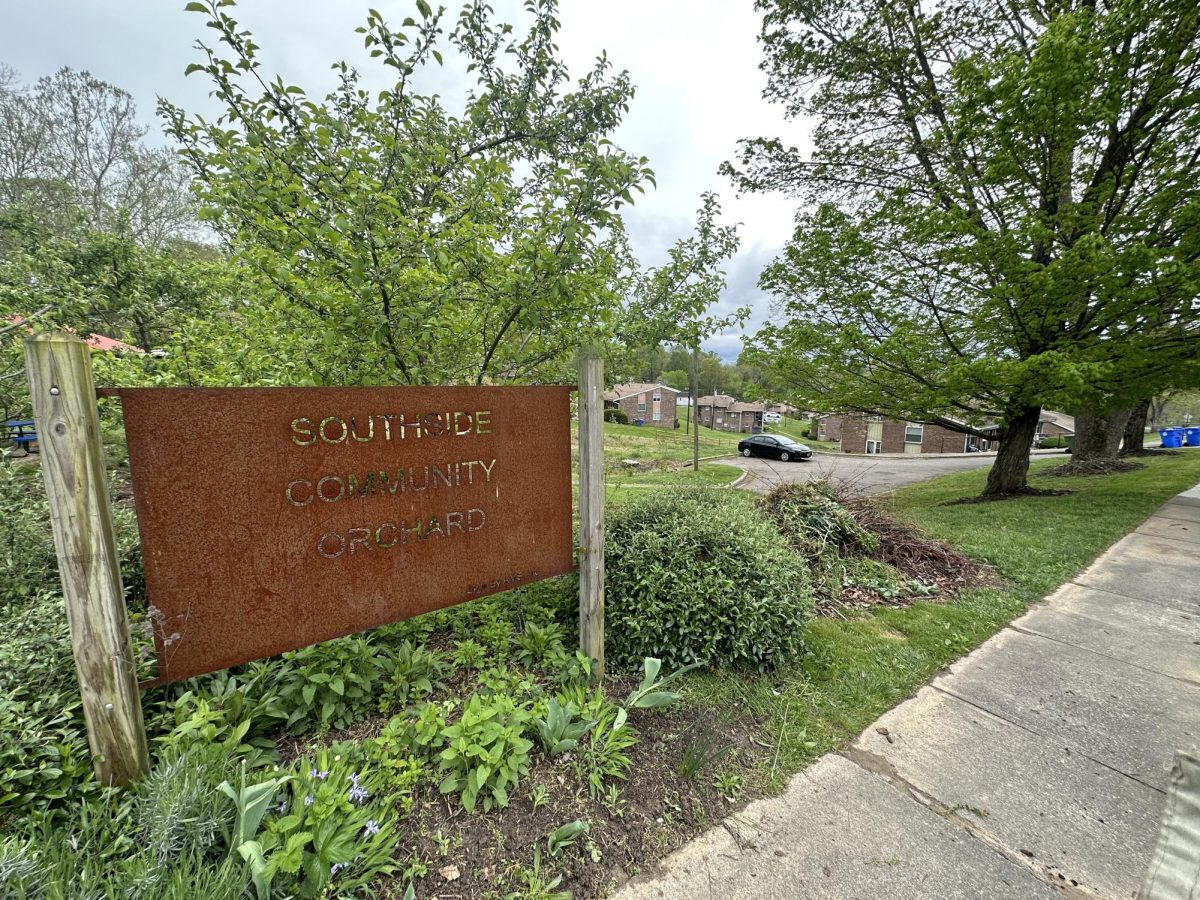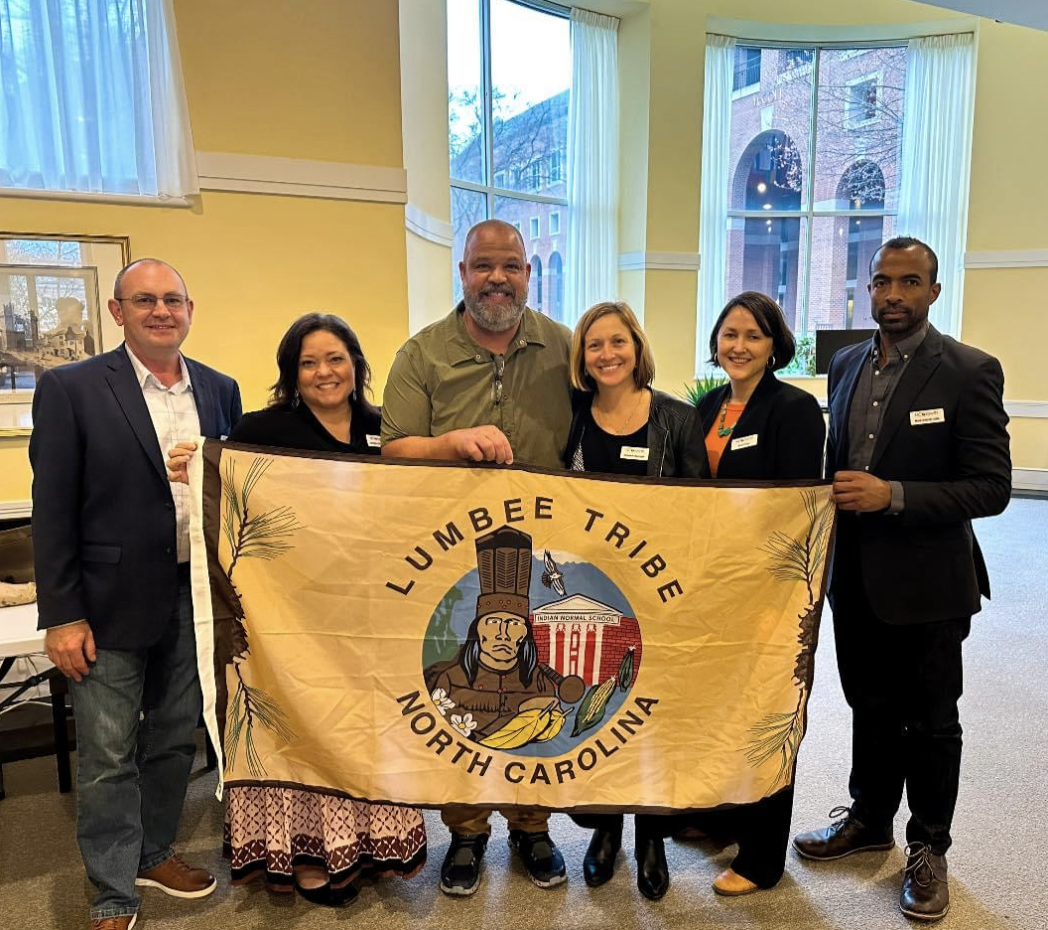
Rylie Daniel
Arts & Feature
[email protected]
Swinging her feet in anticipation, Dasia Jefferson waits in a small presentation room at UNC Asheville with her friend. The two chat about the black pastor preparing his speech. Filled with skeptical hope, Jefferson settles in, ready for the conversation on decolonization within the church.
The pastor begins to speak, assuring the 21-year-old senior with his direction. She listens intently, nodding her head to the ideas about colonization and where it exists. Looking around, Jefferson could see shared agreeance among the group.
As the presentation continues Jefferson’s hope diminishes, unlike the rest of the room’s. She sat listening to the pastor talking in circles, repeating basic idea after basic idea.
Her mind starts swimming with thoughts of confusion and false-hope thinking about when he will say what she needs him to say, so she doesn’t have to.
Holding on to her last bit of hope, Jefferson continues to listen, observing the reactions of her white peers. The health and wellness major feels relief, becoming motivated as the conversation leads into racial trauma.
Coming to a conclusion, the pastor proposes one last topic of discussion among the audience.
“Let’s talk about how racism hurts white people,” he said.
Commotion picks up as everyone turns to those next to them, readying themselves for conversation. Everyone begins to discuss while the pastor listens in.
Petrified in her seat, Jefferson takes in what she had just witnessed. Emotion after emotion rolling through her being. Confusion at the mere thought of racism hurting white people, infuriation at others’ eagerness to speak and complete disdain for the common accord among the room.
“We’re talking about racism and you’re going to say, ‘Oh white men,’ you’re going to center them? You’re going to victimize them?” she said.
Former Senior Director of Admissions and Financial Aid, Steve McKellips said the institution places a high priority on diversity in general.
The Black population in North Carolina amounts to 22 percent compared to the 5 percent residing in the student population at UNCA, according to the U.S. Census Bureau.
“It’s not for me to determine which communities are missing and go and fill them,” McKellips said. “The makeup of the enrollment population is a microcosm of a much larger society.”
Eager to learn and eager to speak, Demon Thomas sits in introduction to sociology twiddling his fingers through the highlighted tips of his hair, hoping the opportunity arises.
A flurry of commotion commences among the quaint classroom as a documentary on poverty ends. Seats shuffle, lights flicker on and a ring of coughing ensues while the commanding voice of Thomas’s teacher beckons all attention, prompting the beginning of a discussion. The sophomore and his classmates converse over the topics throughout the documentary, reviewing different ideologies.
As the voices start to dwindle, Thomas’s teacher decides to mention one last thing, Black Lives Matter.
Halting his twiddling, the almost 20-year-old jumps at the opportunity, proposing a question to the class.
“So, as a white American, what are your views on Black Lives Matter?”
Some looked away, trying to act casual, others completely obvious in their attempts to avoid eye contact.
“I was waiting for someone else to say something, but no one ever did,” he said.
All but one voice stayed silent. Thomas’s friend, a known face, someone who cares. But just one.
The slowly-increasing minority population at UNCA stands at a mere 20 percent of the total 3,667 students, according to the university’s 2019 institutional research report.
“North Carolina is such a white state that those statistics aren’t surprising. I think that minorities need to be celebrated, especially in schools, and it’s upsetting to hear that statistic,” said sophomore Kira Lipson, a person of color.
Class curriculums fall short in consistent representation of different demographics and backgrounds, said Thomas, a student ambassador.
“What about my people, you know what I’m saying? What about indigenous people? What about everyone else. I just feel like white culture is huge,” Thomas said.
The UNCA campus creates a safe space with multiple resources for many in the LGBTQ+ community, 19-year-old transgender sophomore Leo Coffey said.
“I take advantage of health and counseling. They prescribe my hormones and were the ones who started me on them,” Coffey said. “When I first came out, I knew UNCA was definitely a good place for me because of the accommodations they have for people.”
Coffey said there are many organizations geared toward the LGBTQ+ community, but are not entirely inclusive.
“I think a lot of the representation for the LGBTQ+ clubs are just white people and it’s like, that’s not appealing to or accounting for everybody,” he said.
According to Coffey, UNCA has great resources, but lacks in the overall representation for everyone on campus.
“I honestly don’t know much about the queer resources here because I’ve tried to stay away from those spaces because my experience has been so racist, I just can’t,” Jefferson said.
According to a National LGBTQ Task Force study, only 31 percent of college students feel their college’s administration addresses LGBTQ+ issues on campus.
Jefferson said the experiences of those who are white and queer differ greatly from the experiences had by those who are black and queer.
“I’ve had really bad experiences with queer white people who will be like, ‘Oh we understand this because we’re queer’, and I’m like ‘No you don’t, you are white,” the 21-year-old said. “I am black, queer and a woman. Don’t make them the same, they’re clearly two very different things.”
The National Center for Education Statistics reported 19 percent of undergraduate students have a disability. This included deafness, visual impairments that cannot be remedied with glasses, orthopedic or mobility impairment, speech or language impairment, learning, mental, emotional, or psychiatric condition, or other health impairment problems.
The rights of everyone need attention, but people with disabilities tend not to be considered, said Jordan Scheffer, a blind UNCA student.
“Really, I think that people would benefit from seeing how people like me live our lives and navigate the world,” Scheffer said. “I think it sheds light onto different ways of approaching life.”
The 20-year-old freshman said society makes people perceive those with disabilities as helpless and does little to encourage other perspectives.
“For a time I had this sort of inferiority complex, kind of, where I thought people that don’t understand me must just be people. How can you not understand a blind person? I now realize that it is not their fault,” Jordan said.
The UNCA campus continues growing in disability awareness and overall accessibility according to Katie Smith, accessibility specialist.
“I love the way that accessibility and issues pertaining to disability are trickling into just the everyday consciousness of people,” said Carolyn Ogburn, Smith’s colleague and director of accessibility services.
Ogburn said accessibility is subjective. She said a specific area on campus can be ADA compliant, but that does not mean it is accessible because accessibility is individual and situational specific.
“Here on the UNCA campus a lot of areas are accessible to a lot of people. A lot of curriculums are accessible to a lot of people. For some individuals the same situation can be completely inaccessible,” the disability advocate said.

















